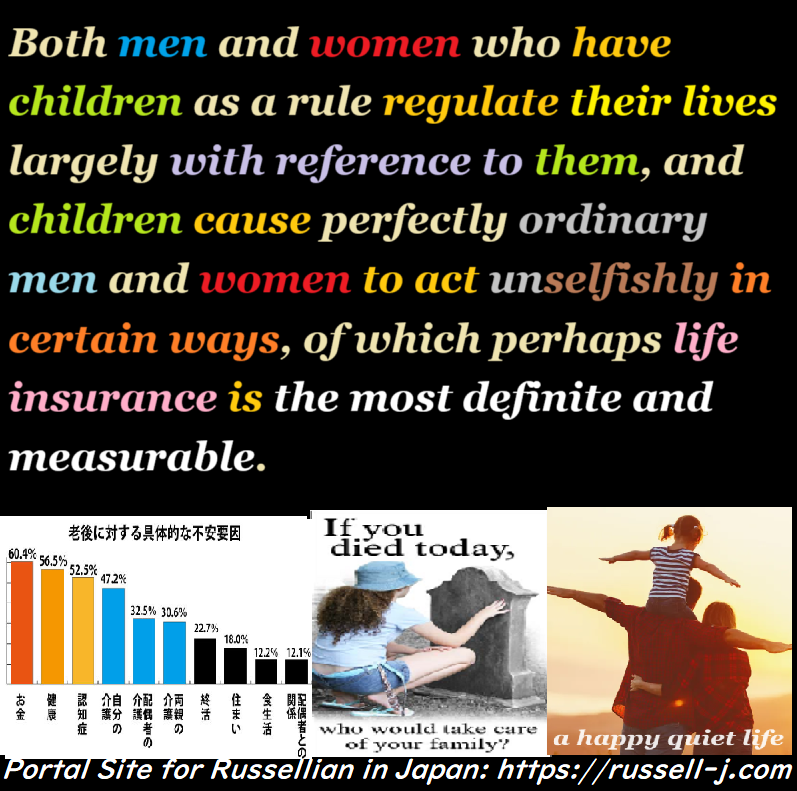
Both men and women who have children as a rule regulate their lives largely with reference to them, and children cause perfectly ordinary men and women to act unselfishly in certain ways, of which perhaps life insurance is the most definite and measurable.
Source: Bertrand Russell: Marriage and Morals, 1929
More info.:https://russell-j.com/beginner/MM13-120.HTM
* a brief comment:
The saying, “When you wish to show filial piety, your parents are no longer there,” has echoed through the ages and across cultures. Another proverb that reflects a similar sentiment is “Children do not understand their parents’ hearts.” But from the child’s perspective, one might say, “Parents do not understand their children’s hearts.” Because parents remember their own childhoods, they tend to assume they understand their children’s feelings to some degree.
Such differences in thought and sensibility between parents and children tend to widen during times of rapid social change, and in extreme cases, they can even lead to a complete breakdown of the parent-child relationship.
As a representative example of unselfish behavior motivated by concern for their children, Bertrand Russell cites taking out life insurance. Once children grow up and start earning their own living, life insurance should theoretically no longer be necessary. However, in today’s aging society, people cannot live with peace of mind unless they possess sufficient financial assets. As a result, modern "life" insurance increasingly offers plans that cover medical expenses and other forms of support.
While there’s something a bit unpleasant about a business model that capitalizes on people’s worries and anxieties, the reality is that unless you are financially independent, it’s nearly impossible to escape the “clutches” of the life insurance industry. (Just kidding)
* Amazon Gift Card
Source: Bertrand Russell: Marriage and Morals, 1929
More info.:https://russell-j.com/beginner/MM13-120.HTM
* a brief comment:
The saying, “When you wish to show filial piety, your parents are no longer there,” has echoed through the ages and across cultures. Another proverb that reflects a similar sentiment is “Children do not understand their parents’ hearts.” But from the child’s perspective, one might say, “Parents do not understand their children’s hearts.” Because parents remember their own childhoods, they tend to assume they understand their children’s feelings to some degree.
Such differences in thought and sensibility between parents and children tend to widen during times of rapid social change, and in extreme cases, they can even lead to a complete breakdown of the parent-child relationship.
As a representative example of unselfish behavior motivated by concern for their children, Bertrand Russell cites taking out life insurance. Once children grow up and start earning their own living, life insurance should theoretically no longer be necessary. However, in today’s aging society, people cannot live with peace of mind unless they possess sufficient financial assets. As a result, modern "life" insurance increasingly offers plans that cover medical expenses and other forms of support.
While there’s something a bit unpleasant about a business model that capitalizes on people’s worries and anxieties, the reality is that unless you are financially independent, it’s nearly impossible to escape the “clutches” of the life insurance industry. (Just kidding)
* Amazon Gift Card
